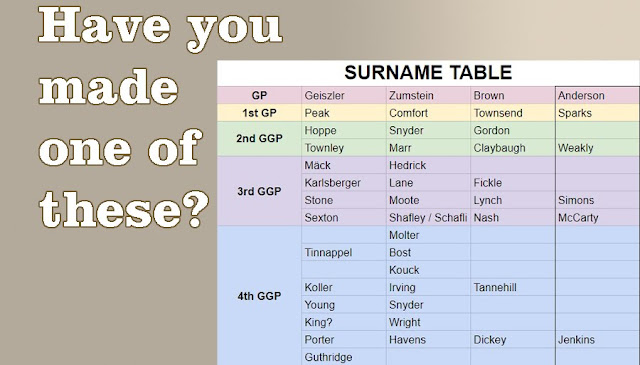Ignore Your Audience When Writing Your Family History First Draft
Numerous writing tips videos tell you to write for a particular audience. When you're writing a fictional book or blog post or a non-fiction how-to book, knowing who your audience helps you tailor your language to them. However, in the first step of writing a memoir or a family history narrative, it's the worst advice.
Can you build a house without identifying what materials you have to use?
Not really.
If you have access to bricks, you'll build a different house than if you only have access to mud and clay. If you have no steel, it will be difficult to construct a 70-floor apartment building.
You have to know what you have to work with before you can plan your building?
When we write a memoir or a family history, we need to know what materials we have to work with. To do that, we need to ignore the ultimate audience for the final product and focus on collecting our possible materials.
When you're writing your first draft of a memoir, you're pulling memories out of your mind. If you have to run those memories through a filter of a target audience, you will halt the flow of writing. Why is that?
- You’ll criticize those feelings for being incomplete or childish.
- You’ll judge your memories as unfair to someone else or wrong.
- You'll fixate on translating your memories into the language a particular audience can relate to rather than accumulate fleeting glimpses of the past.
In the end, your memories won’t trust you to capture them and value them for what they're worth. So, your memories will stop flowing freely. You lose when you focus on your audience during your first draft.
So, ignore your audience when you begin writing a family history story or a memoir. Write and curate your tales until you've written everything you can think to say. At that point, you have completed the first draft.
After you compile all of your stories into a first draft, then you can review what you have and answer the following questions:
- Would young children benefit from the stories?
- Would teenagers and adults be capable of handling the intensity of the topics?
- Would a public audience benefit from personal stories or the stories of your ancestors?
Ignore your audience when you begin writing and then adjust your final project to a specific audience.
 |
| Share on Pinterest |




Comments
Post a Comment